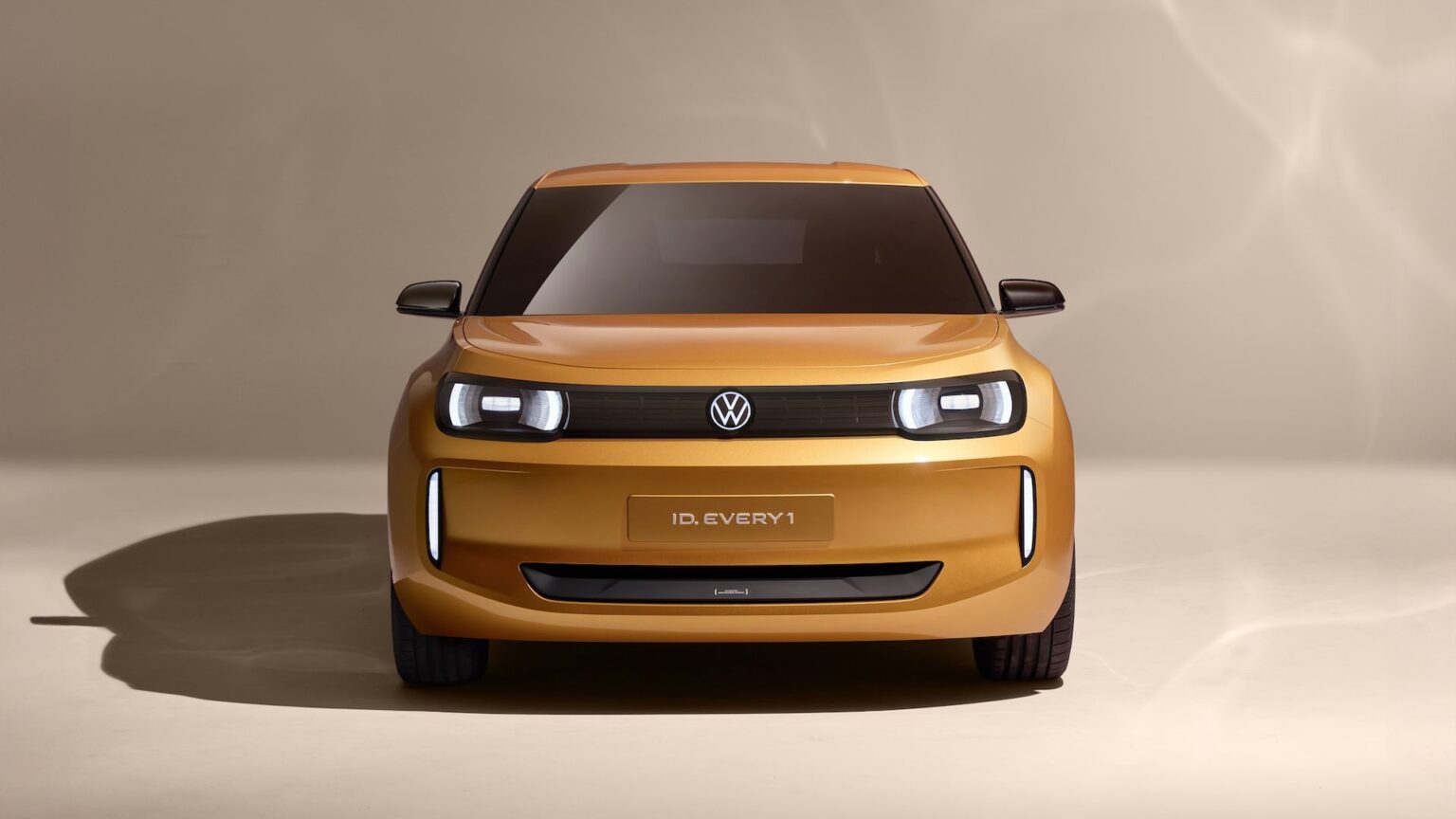Although everyone would like to see an actual affordable electric vehicle (EV) soon, the reality of such a thing is easier said than done for automakers. The cost of vehicle production has skyrocketed in recent years, including rising material costs, labor costs and the complications around securing the required resources to build batteries at a profit.
So, when Volkswagen announced the arrival of a sub-$25,000 EV concept called the ID.Every1 (which will eventually be called ID.1), we were all impressed by VW’s ability to pull it off, considering even Tesla still hasn’t released its long-promised affordable car. Turns out building it at such a low price point will be quite a challenge, VW says.
Volkswagen ID.1: Automaker Considers Using Chinese Suppliers To Reduce Costs
While currently in concept form, Volkswagen’s ID.1 will commence production in 2027 at VW’s most profitable manufacturing facility in Setubal, Portugal, alongside the current, European-market T-Roc crossover. But to keep the price low, VW will need to do more than use a high-margin factory. It also plans on incorporating Rivian-sourced technology to simplify how the ID.1 will be conceived and built, further reducing costs.
As a matter of fact, the ID.1, which will most likely only be sold in Europe to compete against a slew of new, small, and affordable Chinese EVs that have recently infiltrated that market, will be the first VW to be built on a Rivian-developed platform and electric architecture.
But VW will still need to do more to drive costs down, even if it means renegotiating its current deals with suppliers. In a recent report from Automotive News on the matter, we read that the VW Group CEO, Oliver Blume, said that his company will consider using Chinese suppliers to further reduce ID.1 production costs. However, its CFO did admit that achieving positive profit margins from the ID.1 will remain difficult.
Larger, Upcoming ID Models Will Cover ID.1’s Profitability Losses
So, why is VW focusing so many resources on a car it doesn’t know if it will make a profit on? According to Blume, it’s important for VW to develop a small EV like the ID.1 because it will help bring new customers to the brand. It will also serve as a way for VW to tackle the Chinese machine on European soil, but also bring relief to consumers fed up with paying too much for a new car. Blume believes that although initial margins will be low, the ID.1 will be a sales hit, which could potentially help VW get back on the radar of consumers.
But, on a more long-term basis, VW also plans on releasing larger EVs, based on the same platform, with slightly higher price points, and sold in other markets like North America. Blume hinted at the upcoming ID.2 which, although also built at VW’s plant in Portugal, will have a good profit margin, the CEO said.
But with Trump’s yo-yo tariff announcements also threatening the European Union, VW will need to shift production of its next-generation ID models to its U.S. assembly plants. And there lies the real challenge, as these plants don’t currently have the same low-cost efficiency as Setubal, which currently resides in a hotbed of European auto manufacturing thanks to solid supplier infrastructure in the region. We’ll keep following the development of VW’s next-generation EVs and will report back here once we know more.
Read the full article here


